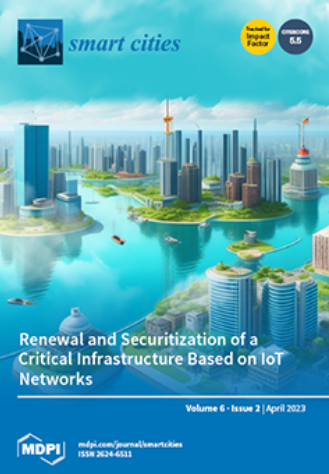基于启发式算法的CO2排放最小化出租车分配优化
IF 5.5
Q1 ENGINEERING, ELECTRICAL & ELECTRONIC
引用次数: 0
摘要
近年来,二氧化碳排放增加引起的快速气候变化已成为全球关注的问题。高效的交通系统是减少城市二氧化碳排放的必要条件。出租车服务是交通系统的重要组成部分,无论是在需求高的城市地区,还是在公共交通不足的农村地区。效率低下的出租车服务造成了诸如闲置时间增加等问题,从而导致二氧化碳排放量增加。本研究提出计程车闲置时间成本最小的计程车分配模型,以实现计程车服务的高效率运作。我们还提出了三种启发式算法来求解所提出的模型。最后,我们利用日本长冈市的真实出租车数据进行了案例研究。通过对三种算法的比较,动态贪心算法在空闲时间开销和CPU时间方面效果最好。研究结果表明,通过最大限度地减少闲置时间成本和减少出租车数量,交通运输部门的二氧化碳排放量有可能减少81.84%。此外,为了估计闲置时间成本,考虑了需求的敏感性。本文章由计算机程序翻译,如有差异,请以英文原文为准。
Optimization of Taxi Allocation for Minimizing CO2 Emissions Based on Heuristics Algorithms
Recently, the rapid climate change caused by increasing CO2 emissions has become a global concern. Efficient transportation systems are necessary to reduce CO2 emissions in cities. Taxi services are an essential part of the transportation system, both in urban areas with high demand and in rural areas with inadequate public transportation. Inefficient taxi services cause problems such as increased idle times, resulting in increased CO2 emissions. This study proposes a taxi allocation model that minimizes taxi idle time costs for efficient taxi service operation. We also propose three heuristic algorithms to solve the proposed model. At last, we conduct a case study by using real taxi data in Nagaoka, Japan. By comparing the three algorithms, the dynamic greedy algorithm produced the best result in terms of idle time cost and CPU time. The findings indicate that by minimizing idle time costs and reducing the number of taxis, it is possible to achieve a significant 81.84% reduction in CO2 emissions within the transportation sector. Further, in order to estimate the idle time costs the sensitivity of demand is considered.
求助全文
通过发布文献求助,成功后即可免费获取论文全文。
去求助
来源期刊

Smart Cities
Multiple-
CiteScore
11.20
自引率
6.20%
发文量
0
审稿时长
11 weeks
期刊介绍:
Smart Cities (ISSN 2624-6511) provides an advanced forum for the dissemination of information on the science and technology of smart cities, publishing reviews, regular research papers (articles) and communications in all areas of research concerning smart cities. Our aim is to encourage scientists to publish their experimental and theoretical results in as much detail as possible, with no restriction on the maximum length of the papers published so that all experimental results can be reproduced.
 求助内容:
求助内容: 应助结果提醒方式:
应助结果提醒方式:


